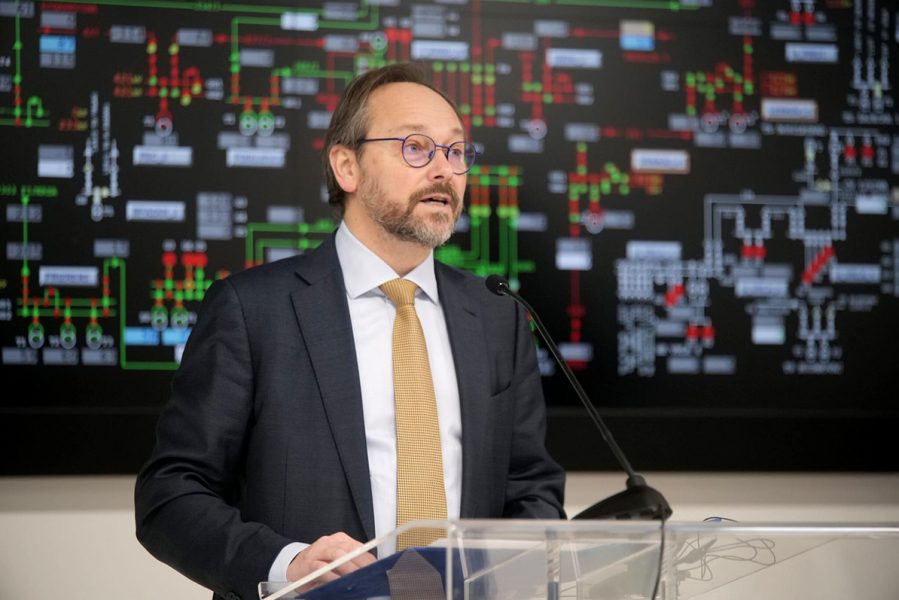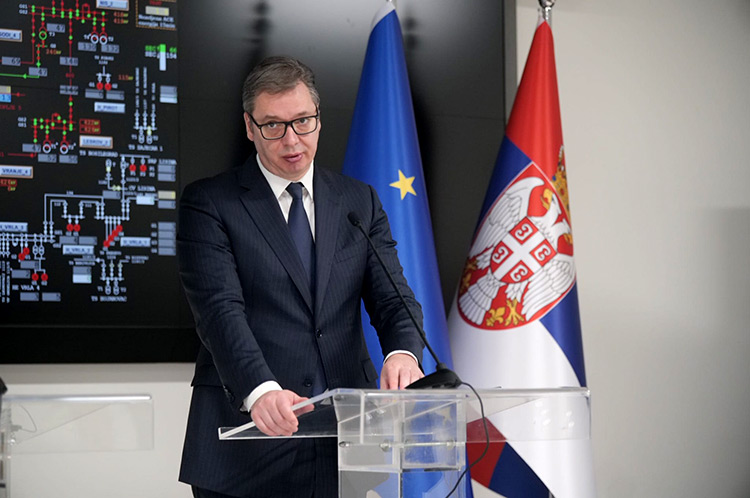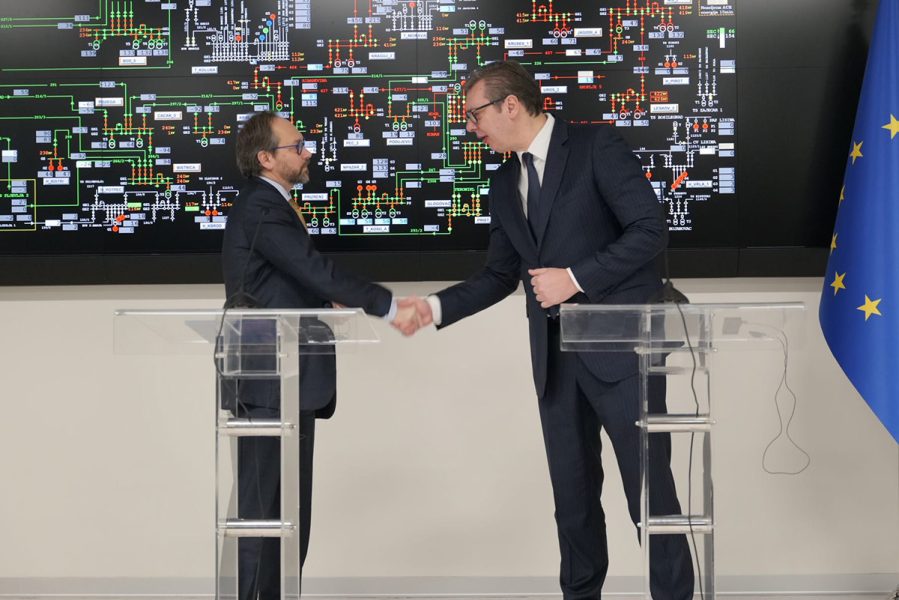Representatives of Serbia and the European Union signed an agreement on the EUR 165 million EU Energy Support Package of Serbia at the National Dispatch Center of the Electric Grid of Serbia.
The agreement was signed in the presence of the President of Serbia, Aleksandar Vučić, and the EU Ambassador to Serbia, Emanuele Giaufret, as well as the Minister for European Integration, Tanja Miščević, the Minister of Mining and Energy, Dubravka Đedović, the Minister of Finance, Siniša Malog, and representatives of the EU member states – the ambassadors of Sweden, Spain, and the Czech Republic. Republic.
The package also refers to the provision of immediate support, which will help up to 191,000 vulnerable families and businesses to cope with the energy crisis, as well as strategic support that will help Serbia’s energy security, diversification and transition to green energy.
“President Von der Leyen said during her visit to Niš in October last year that whatever the European Union does, the Western Balkans is included because we are very connected. Today, we are taking another significant step and an example of partnership during the energy crisis, by signing a donation of 165 million euros as direct budget support to Serbia. The purpose is to meet the urgent needs of Serbia, especially the most vulnerable families who will be able to continue using reduced energy prices and warm their children in the winter, as well as small and medium-sized enterprises that will be helped to cope with higher energy prices. This is very concrete, thanks to that, during 2023, at least the same number of households as in 2022 will be protected, and that number will gradually increase by the end of the year to 191,000”, said Ambassador Giaufret, adding that Serbia will benefit from this tranche at the same time EU funds in the form of a new wind farm in Kostolac and the reconstruction of hydroelectric power plants in Vlasina, as part of longer-term goals towards the transition to green energy they live.

In his address, the President of Serbia, Aleksandar Vučić, thanked the EU and its citizens for the support that strengthens Serbia’s capacities.
“This is a great gift for us, which structurally strengthens the capacities of the Republic of Serbia, and we are infinitely grateful for that. It is important for us not only to cooperate with the EU, but also to continue our European path. Serbia depends a lot on the European Union and without it it would be difficult can move forward. Thank you to Ambassador Giofre for your personal involvement, as well as to the President of the Commission, Ursula von der Leyen. This is great news for the citizens of Serbia,” Vučić said.
The leaders of the European Union and the Western Balkans met on December 6, 2022 at the Summit in Tirana. A wide range of support measures and political activities were announced, including a new package of energy support for the Western Balkans with a total value of one billion euros.

From the first EU budget support package of 500 million euros, Serbia will directly receive 165 million euros, which represents the largest share compared to other partners from the Western Balkans. The financial agreement that should be signed is a legally valid contract between the EU and the Republic of Serbia, which enables the transfer of 165 million euros to the Serbian budget.
The money is made available for the implementation of the energy road map of the Government of Serbia, which describes what the EU money should be spent on.
Subsidies for vulnerable households to overcome price increases on energy bills refer to an already existing mechanism in Serbia, to which the EU additionally contributes, because more and more people are affected by the energy crisis. EU grants will be added to Serbia’s budget to ensure that the most vulnerable families continue to benefit from lower energy prices.
Thanks to this, during 2023, at least the same number of households will be protected as in 2022, namely 68,000 households, and that number will progressively increase to 191,000 households by December 31, 2023.

In practice, protected households with two members, which now pay around 3,770 dinars for electricity bills, will pay 1,721.87 dinars less, as well as 50 percent less every month, for example, for district heating.
In order for citizens to benefit from this energy discount, they should apply to the local self-government in the territory of their residence, which makes decisions on the basis of the Regulation on energy-vulnerable customers.
EU grants will be added to Serbia’s budget to ensure that small and medium-sized enterprises continue to benefit from stable energy prices. Thanks to this, during 2023 at least the same number of SMEs as in 2022, i.e. 70,000 companies, will benefit from EU support, and this number can be increased until November 2023.
In practice, protected SMEs will benefit from price caps. Budget support is the maintenance of the upper limit of the price of electricity regardless of fluctuations in the electricity market.
Part of the roadmap also refers to incentives for electricity consumers from the household category to reduce electricity consumption by March 31, 2023 in order to continue avoiding power outages.
An increase in competition in the gas and electricity markets is also foreseen: Separation and certification of all gas and gas storage operators, opening of the gas market and access of third parties to the existing infrastructure, conducting auctions for producers of electricity from renewable energy sources.
Energy security is in focus and refers to the co-financing of projects; adoption of the investment plan in the electric power sector for the development and upgrading of the existing electric power infrastructure by the second quarter of 2023; adoption of the investment plan in the oil and gas sector for the development and improvement of the existing energy infrastructure that mitigates the energy crisis by the second quarter of 2023.
As an important part of the roadmap, it is planned to promote energy efficiency and renewable energy sources through a subsidy scheme for households and multi-family residential buildings, to implement energy efficiency measures and subsidize solar panels, heat pumps and similar benefits for private homes, small and medium-sized enterprises and public buildings.
Photo: europa.rs